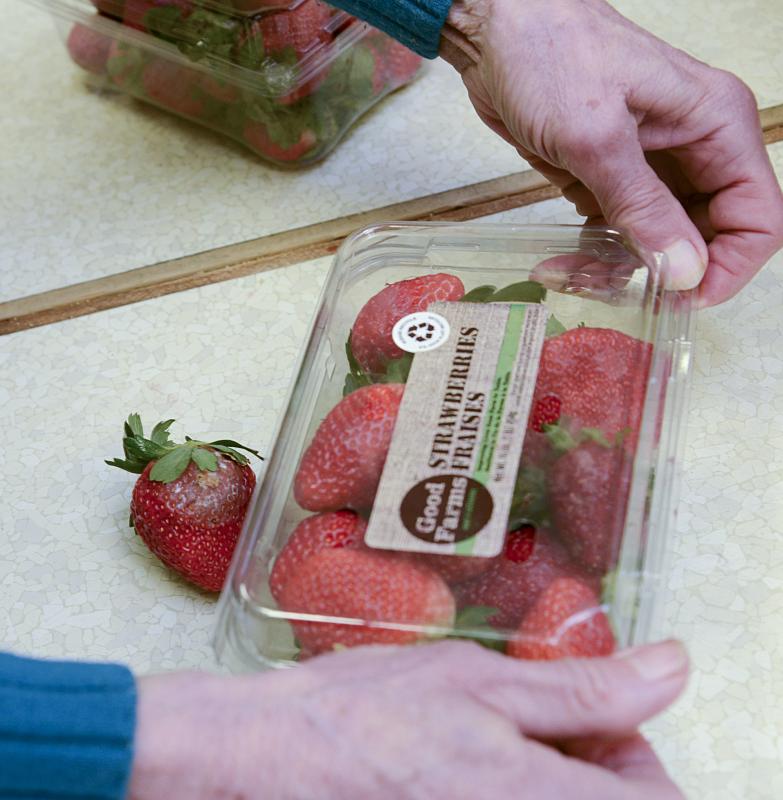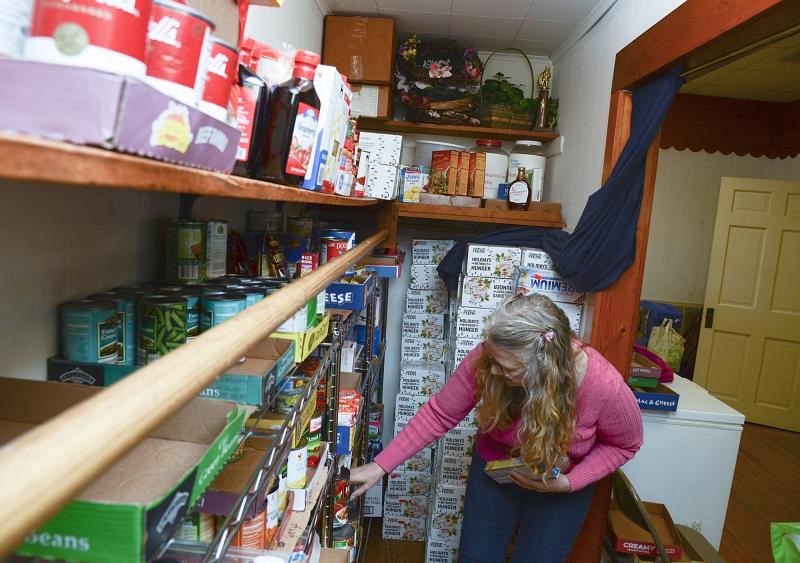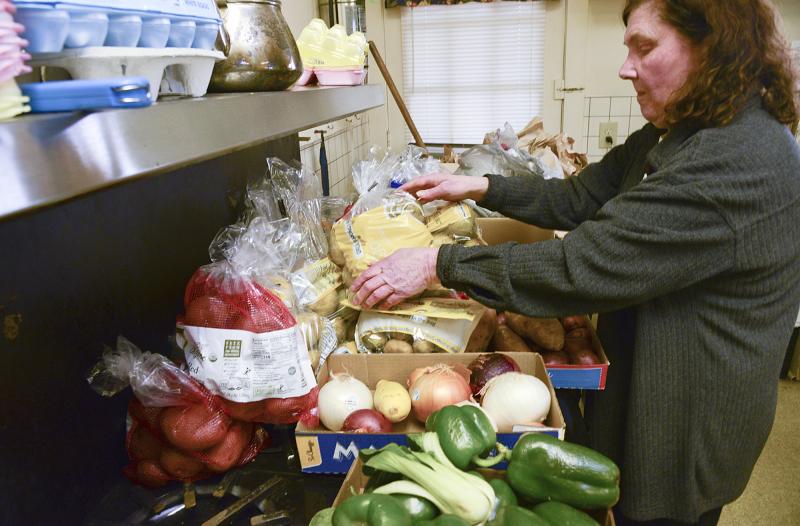Need to feed: Milton food pantry seeks help
Barbara Wright’s passion is to feed the hungry, but she needs some help.
Over the past five years, Wright, president of the Milton Community Food Pantry, has watched the pantry serve more and more people. Since opening, she said, the number of weekly clients has more than tripled. During the holiday season, the number of people served soars to 400. The pantry is in Goshen Hall at 114 Federal St. in Milton.
“The first week we opened, in June 2014, we had nine people come in for food. As of January 2019, the pantry provided three days’ worth of food to 88 families, which equates to 325 people, and the numbers are growing,” she said.
Recently, the number of people increased even more, when Eagle’s Nest closed its pantry. The Milton pantry is exclusively donation-based — they don’t turn anyone away, Wright said.
Now the pantry is looking for a few talented volunteers to create a long-term plan for the operation. On the wish list is a strategic planner, and a team to find grants and apply for them. A corporate sponsor who could be counted on for a steady influx of cash would be a great asset.
A nonprofit, MCFP has nine members who serve on the board. The daily workload is shared with about 30 volunteers who rotate during the week, performing shopping tasks, food retrieval, sorting and packing. Under Wright’s supervision, the pantry is a well-oiled machine. “We do this every week,” Wright said.
The pantry consists of a small closet, a corner in the storage room, two freezers, space under a table in the main hall, and a couple shelves in the hall’s refrigerator.
There are a few local companies that offer support, either with food or monetary donations, but it isn’t a set amount, Wright said. Local businesses, individuals, groups and churches donate regularly, and people like to give around the holidays, but in winter the donations fall off.
“The growth has overwhelmed us; we never thought the need would be this great,” said Nancy Trask, MCFP vice president.
Many people on fixed or low incomes are forced to make dire financial decisions, she said. “Do you pay the electric bill, do you put gas in the car or buy medication? These are real concerns that affect a person’s ability to afford food,” said Trask. “We are grateful for the donations and the use of the hall, but at this rate, we might outgrow the space. Then what do we do? We can’t close it up and let people go hungry.”
The hall is a shared space with other organizations. A few years ago a couple of freezers were donated. The pantry shares the church’s refrigerators in the hall and occupies a corner in the storeroom.
“We started out with canned goods only,” said Christy Robinson, MCFP treasurer. “In the summer we get donations from over-producing gardens, and local produce stands offer vegetables. We have shoppers who go out during the week to supplement what has been donated. We spend around $600 a week on items we don’t have in-house,” Robinson said.
Wright said when the hall is rented out, the group’s items have to be packed up and physically moved out. “I’ve been in here at 9 p.m. moving things to my living room,” she said. Members are hopeful that a company or person will provide them with a space or a building so they aren’t so cramped.
Using a bathroom scale, Sue Kinchy weighs a donation of frozen meat and records it. “This is another thing that would be useful, a proper scale!” said Kinchy.
As the kitchen staff takes stock of what is still edible from the previous week, they realize the older-model refrigerators have once again frozen some of the vegetables.
Each week a few shoppers take inventory and prepare the lists of food needed before heading out to area stores to refill the shelves. There is a group that transports donated items from local businesses and delivers them back to the hall for sorting.
On Sunday, the bag packers come in and begin filling the orders based on the previous week’s count. The kitchen staff sorts the produce. A third group checks expiration dates, and still another group begins setting up the clothing, shoes, blankets, and toiletries.
Monday morning before the line forms at the door, volunteers are busy adding fruit, vegetables, meat, and bread to the prepared boxes. When the doors open, the pantry becomes a hive of activity. Heads are counted, boxes are distributed, clothes are shared, and within two hours, the tables are bare.
The pantry opens every Monday from 10 a.m. to noon when the packages of dry goods and perishable items are distributed to those in need. And then the preparation process starts all over.
“It truly takes a village for this mission,” Trask said. “The group works diligently every day to feed these folks; now we are in need of some forward thinkers to advise us how to grow, how to get grant money and how to prepare for a long-range plan.”
To offer assistance to MCFP call 302-278-9557 or email mcfp.delaware@gmail.com, or follow on Facebook at MCFPDelaware.
How to Help
Milton Community Food Pantry will host a spaghetti dinner fundraiser, Saturday, Feb. 23, 4 to 7 p.m. at Goshen Hall, 114 Federal St. in Milton. The menu includes spaghetti, sauce with or without meat, salad, Italian bread, brownies and drinks. Tickets cost $9 for ages 13 and up, $5 for ages 6 to 12 and it’s free for children 5 and under. There are 3 seatings at 4, 5, and 6 p.m.















































































































